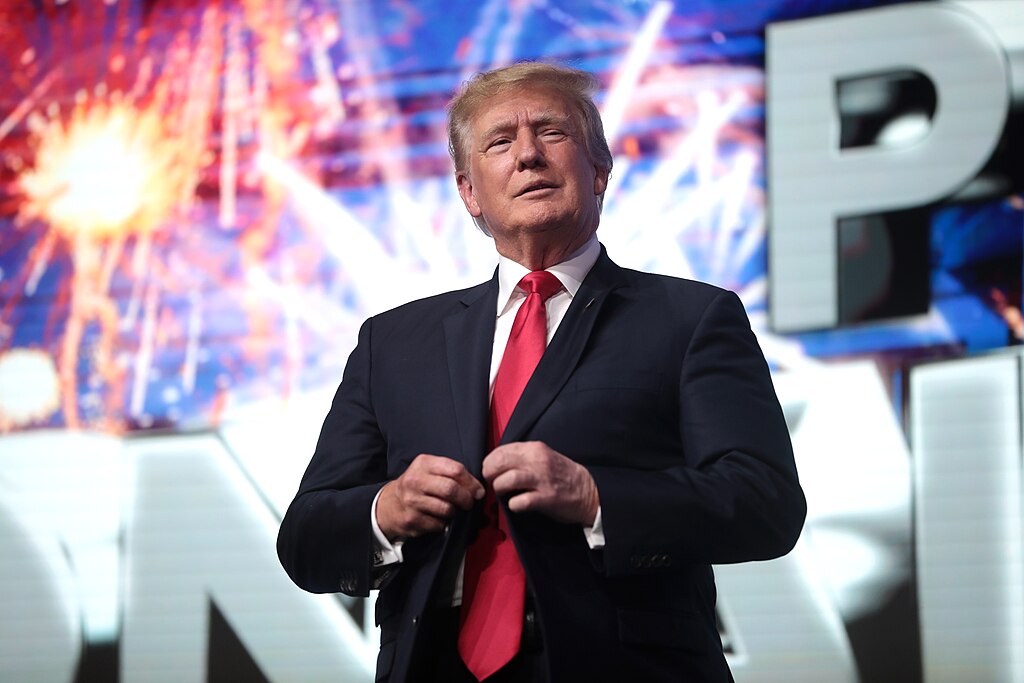In a new twist in the ongoing investigations surrounding the January 6 Capitol riot, recently surfaced transcripts appear to show that former President Donald Trump informed top Pentagon officials about his desire for a National Guard deployment as the violent events unfolded. The revelation comes after months of debate over Trump's role in the chaos that engulfed the Capitol, raising fresh questions about the response from military and law enforcement agencies during the attack.
According to the transcripts, Trump conveyed his desire for a National Guard presence to top defense officials ahead of the insurrection. This contrasts with earlier narratives that questioned his actions during the riot and whether he took adequate steps to quell the violence. The documents suggest that Trump discussed deploying the Guard to maintain order, adding a new layer of complexity to the public’s understanding of the timeline and decision-making process on that day.
Despite this, questions remain about the delays in deploying National Guard troops, which took several hours to arrive at the Capitol after the initial breach. The gap between Trump’s alleged communication with Pentagon officials and the actual response has raised concerns about where the breakdown in decision-making occurred and whether critical warnings went unheeded in the heat of the moment. The lack of a swift military response has been a central point of inquiry for congressional committees investigating the riot.
Trump's supporters argue that the transcripts vindicate the former president, as they suggest he acted responsibly in requesting National Guard assistance. They claim that any delays were due to miscommunication or failures within the Pentagon and other defense agencies rather than a lack of action on Trump’s part. However, critics continue to point out that Trump's rhetoric leading up to the event may have contributed to the situation, and his actions alone do not absolve him from responsibility.
The role of the National Guard on January 6 has been heavily scrutinized, with various agencies and officials offering differing accounts of what transpired behind closed doors. Defense Department leaders have previously testified that they were hesitant to deploy the Guard due to concerns about escalating tensions. The newly surfaced transcripts raise further questions about whether those concerns delayed critical decisions or if Trump’s directives were not communicated effectively.
For Trump, who is considering another run for the White House in 2024, the release of these transcripts could play a significant role in shaping public perception of his leadership during one of the most controversial moments in recent American history. With multiple investigations still underway, these revelations are likely to be analyzed in detail as part of the broader effort to understand the events of January 6 and hold those responsible to account.
As both political and legal battles surrounding January 6 continue, the question of Trump’s intent and the actions of military leaders will remain pivotal. The full impact of these newly released transcripts on public opinion and future proceedings is yet to be determined.



 Rubio Says U.S. Would Not Target School After Deadly Iran Strike Reports
Rubio Says U.S. Would Not Target School After Deadly Iran Strike Reports  Why did Iran bomb Dubai? A Middle East expert explains the regional alliances at play
Why did Iran bomb Dubai? A Middle East expert explains the regional alliances at play  Suspected Iranian Drone Hits CIA Station at U.S. Embassy in Riyadh Amid Rising Middle East Tensions
Suspected Iranian Drone Hits CIA Station at U.S. Embassy in Riyadh Amid Rising Middle East Tensions  Nepal General Election 2026: Youth Protests, Political Change, and a New Generation of Voters
Nepal General Election 2026: Youth Protests, Political Change, and a New Generation of Voters  U.S. Officials Review Tencent’s Stakes in Epic Games, Riot Games Over Security Concerns
U.S. Officials Review Tencent’s Stakes in Epic Games, Riot Games Over Security Concerns  Middle East Air War Triggers Massive Flight Cancellations and Global Airline Disruptions
Middle East Air War Triggers Massive Flight Cancellations and Global Airline Disruptions  Trump Offers U.S. Insurance and Naval Escort for Tankers as Strait of Hormuz Crisis Disrupts Global Oil Trade
Trump Offers U.S. Insurance and Naval Escort for Tankers as Strait of Hormuz Crisis Disrupts Global Oil Trade  AI is already creeping into election campaigns. NZ’s rules aren’t ready
AI is already creeping into election campaigns. NZ’s rules aren’t ready  Does international law still matter? The strike on the girls’ school in Iran shows why we need it
Does international law still matter? The strike on the girls’ school in Iran shows why we need it  Trump’s Iran Strikes Spark War Powers Clash in Congress
Trump’s Iran Strikes Spark War Powers Clash in Congress  U.S. Interior Department Responds to Leak of Trump Administration Plans to Revise National Park History
U.S. Interior Department Responds to Leak of Trump Administration Plans to Revise National Park History  Trump Says U.S.-UK Relationship Has Deteriorated After Starmer Hesitates on Iran Strikes
Trump Says U.S.-UK Relationship Has Deteriorated After Starmer Hesitates on Iran Strikes  Defense Contractors Move to Drop Anthropic AI After Trump Administration Ban
Defense Contractors Move to Drop Anthropic AI After Trump Administration Ban  Trump and Merz Meet at White House Amid Iran Strikes and Trade Tensions
Trump and Merz Meet at White House Amid Iran Strikes and Trade Tensions  Pentagon Downplays ‘Endless War’ Fears After U.S. Strikes on Iran Escalate Conflict
Pentagon Downplays ‘Endless War’ Fears After U.S. Strikes on Iran Escalate Conflict  European Allies Deploy Air Defenses to Cyprus After Drone Attack on RAF Akrotiri Base
European Allies Deploy Air Defenses to Cyprus After Drone Attack on RAF Akrotiri Base  Supreme Court Backs GOP Lawmaker in New York Redistricting Fight Ahead of Midterms
Supreme Court Backs GOP Lawmaker in New York Redistricting Fight Ahead of Midterms 



























